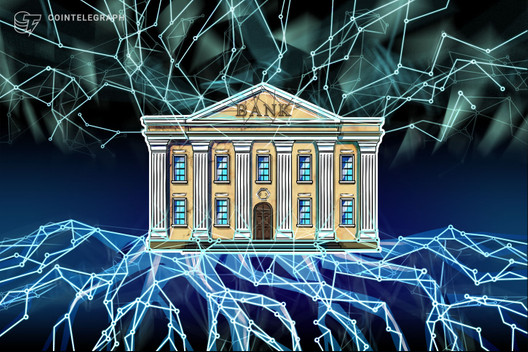TD9 and Exchange Inflows: Reasons for Caution as Bitcoin Hits $10,440
The price of Bitcoin hit $10,463 on BitMEX, slightly below the previous peak in June. But two indicators are signaling a BTC cool-off: TD9 and exchange inflows.

The price of Bitcoin tests a crucial resistance level. Source: Raoul Pal
The TD9 is a trend-reversal indicator that is a part of the TD sequential system. It typically indicates if a rally or a correction is over-extended.
Similarly, exchange inflows, especially among whales, often suggest that the ongoing rally could be overcrowded.
Is the ongoing Bitcoin rally over-extended?
A TD9 sell signal triggers essentially when the price of Bitcoin rises for nine consecutive days without a major pullback. If nine candles all stay above the close of the four candles prior, then a TD9 lights up.
Since July 19, the price of Bitcoin has increased from $9,219 to $10,463. The four candles prior to the most recent nine daily candles closed at $9,150, making a TD9.
The TD9 in itself could be unreliable. It does not take into account the fundamentals or technicals of an asset. But when BTC rallies for nine straight days, and it coincides with other factors, it might hint at a pullback.
Apart from the TD9, analysts are exploring exchange inflows of BTC. According to CryptoQuant CEO Ki Young-Ju, exchange inflows spiked upon Bitcoin’s latest rally. He suggested that some whales could be getting cautious. He said:
“BTC price went up too fast. Seems like other whales think so too.”

Bitcoin exchange inflows spike as BTC surges. Source: CryptoQuant
The funding rates of perpetual futures contracts across major exchanges, like BitMEX and Binance Futures, are also surging.
Perpetual futures contracts do not have any expiration dates, unlike conventional futures contracts. As such, exchanges use a mechanism called funding to incentivize users that bet against the majority of the market.
For example, if the Bitcoin futures market has more than 60% of longs, the funding rate would increase and incentivize short holders.
Currently, the funding rates on BitMEX and Binance Futures are 0.072% and 0.054%, respectively. Usually, the funding rate of BTC perpetual contracts hovers at around 0.01%. It indicates that the majority of the market are longing, which might leave BTC vulnerable to a long squeeze.
An alternative scenario
Meanwhile, some other traders and technical analysts believe that Bitcoin may continue to rally without major pullbacks.
Zoran Kole, a cryptocurrency trader, said he expects Bitcoin to stabilize at the $10,000 to $10,100 support range, before moving upwards. Based on market structure, the trader explained that BTC could surge to as high as $11,500. He wrote:
“Looking to long range high retest/DBS Zone. Invalidation below weekly open/9900 sweep. Targeting 11.5-11.6 weekly kumo top.”
Raoul Pal, the CEO of Real Vision Group, said that the real rally of Bitcoin starts when BTC crosses $10,500. Whether it corrects before hitting the crucial resistance level is an uncertainty, Pal said. But he noted that he expects the momentum to continue. He said:
“The real game in bitcoin begins over $10,500. Maybe it corrects first, maybe not but I’m hodling.”
Simon Peters, a cryptoasset analyst at global investment platform eToro, shared his comments, saying:
“Bitcoin’s network metrics are also looking pretty healthy. Glassnode’s Reserve Risk metric… is currently signaling an attractive risk-to-reward level, indicating that confidence is high and the price is low.”
While several fundamental indicators point toward a minor short-term pullback, some traders believe the momentum of BTC is too strong for a deep correction.







